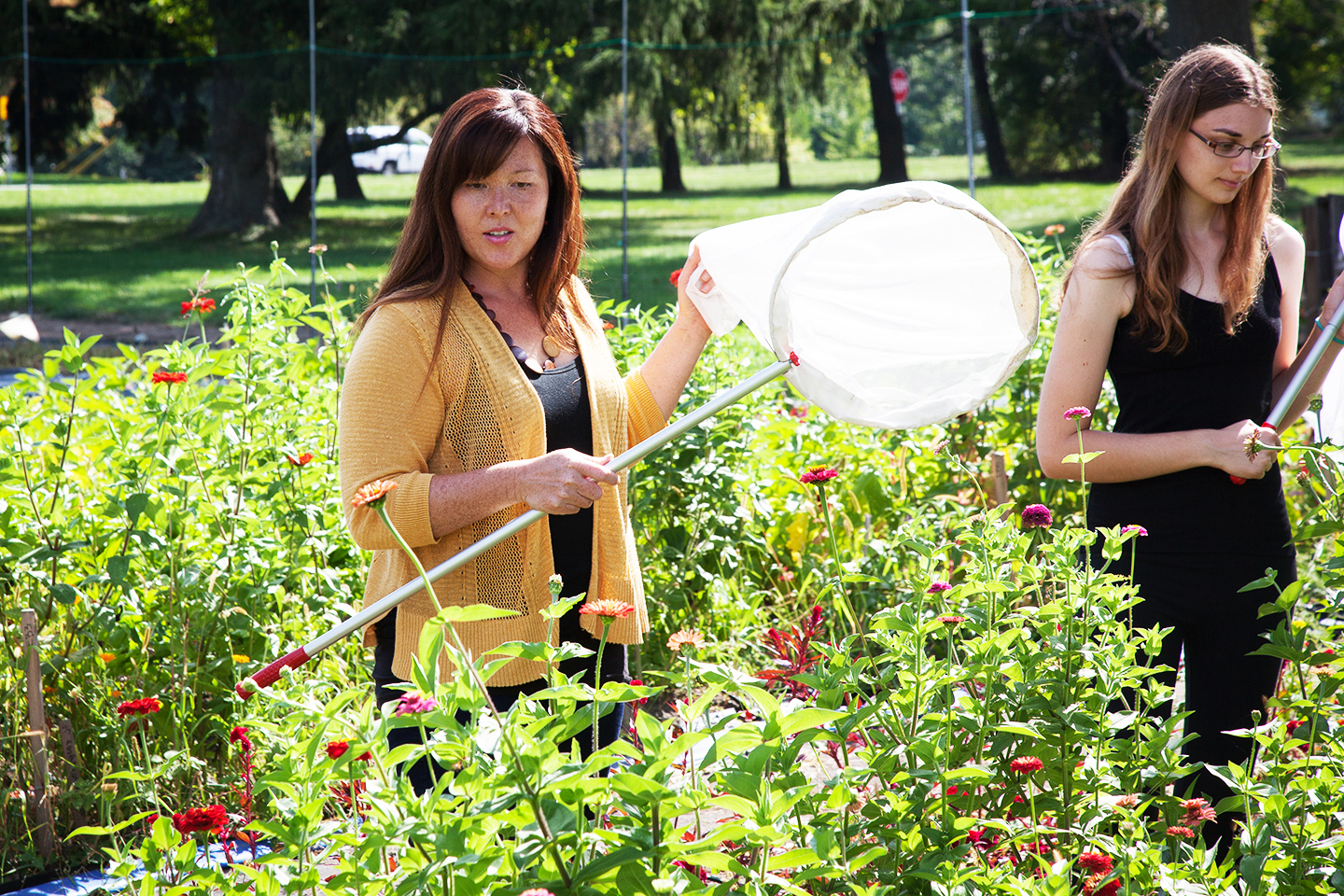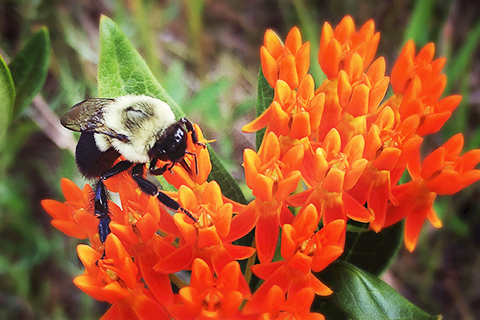Oakland University biology professor named ‘New Innovator’ in food, agriculture research

Mary Jamieson, Ph.D., an assistant professor of biological sciences at Oakland University, has been selected as a recipient of the inaugural New Innovators in Food and Agriculture Research Award by the Foundation for Food and Agriculture Research for her efforts to investigate beneficial insects and the ecosystem services that they provide in urban agriculture.
“With increased interest in sustainable and local food production, urban farming has become a growing component of agriculture and regional food systems,” Dr. Jamieson said. “Community gardens and urban farms provide important economic and social benefits, including a source of healthy and fresh foods as well as opportunities for community engagement and employment.
“There is a lack of research, however, evaluating factors influencing crop productivity on urban and peri-urban farms. In particular, little is known about how insect pollinators and pests influence crop yield on farms in urban environments.”
As a “New Innovator” award recipient, Jamieson will receive $210,618 over the next five years from the Foundation for Food and Agriculture Research (FFAR), with a 1:1 match from Oakland University for a total award of $421,236.
“The FFAR award will support research and community engagement efforts involving about a dozen community gardens and commercial farms throughout the Detroit metropolitan area,” Dr. Jamieson said. “Through these efforts, we hope to educate farms and the public about the role of beneficial insects in agriculture.”
 |
| While most people are familiar with the European honeybee, many are unaware that there are hundreds of native bee species that also provide important pollinator services and in some cases these native bees are more effective pollinators than honeybees. |
According to the FFAR, the New Innovator in Food and Agriculture Research Award funds new faculty and their teams of undergraduate and graduate students and post-doctoral scholars to conduct innovative research with potential to expand the availability of food and facilitate the global practice of sustainable agriculture as the world’s population grows to more than 9 billion people by the year 2050.
“Awarding our first research grants is a landmark occasion for the FFAR and it is a particular honor to invest in the bold ideas of nine scientists who show such extraordinary promise so early in their careers,” said Sally Rockey, Ph.D., executive director of the Foundation.
In addition to Jamieson, other recipients of the 2016 New Innovator in Food and Agriculture Award include:
- Geoffrey Fisher, Ph.D., Cornell University
- Mary Anne Roshni Amalaradjou, Ph.D., University of Connecticut
- Anjali Iyer-Pascuzzi, Ph.D, Purdue University
- Amelie Gaudin, Ph.D, University of California – Davis
- Lisa Tiemann, Ph.D, Michigan State University
- Crystal Levesque, Ph.D., South Dakota University
- Benjamin Reading, Ph.D., North Carolina State University
- Isaya Kisekka, Ph.D., Kansas State University
The nine recipients will receive a total of $4.8 million over five years. Matching funds from each awardee’s respective institution will leverage the Foundation’s investment of up to $300,000 per recipient.
“I am confident that these awards will propel the inaugural New Innovators in Food and Agriculture Research down the fast track to success in their respective fields and I look forward to following their progress toward transformative food and agriculture discoveries,” Rockey said.
According to Dr. Jamieson, her research will primarily involve investigating the ecological relationship among plants and their insect herbivores and pollinators, with a focus on understanding how anthropogenic environmental change influences species’ traits and interactions.
“Through collaborative research and complementary studies conducted over five years, this project will examine the abundance, diversity and functional roles of insects on urban farms; evaluate strategies to enhance ecosystem services provided by beneficial insects in urban agriculture; and characterize the role of plant secondary metabolites in attracting insect pollinators, pests and predators that regulate pest populations,” she said.
The research project will also involve several community and non-profit organizations, including the Dinosaur Hill Children’s Garden in Rochester Hills, HAVEN in Pontiac, the Oakland Hills Community Garden in Lake Orion, the Votrobeck Playground in Detroit, and Everyone’s Garden in Berkley.
